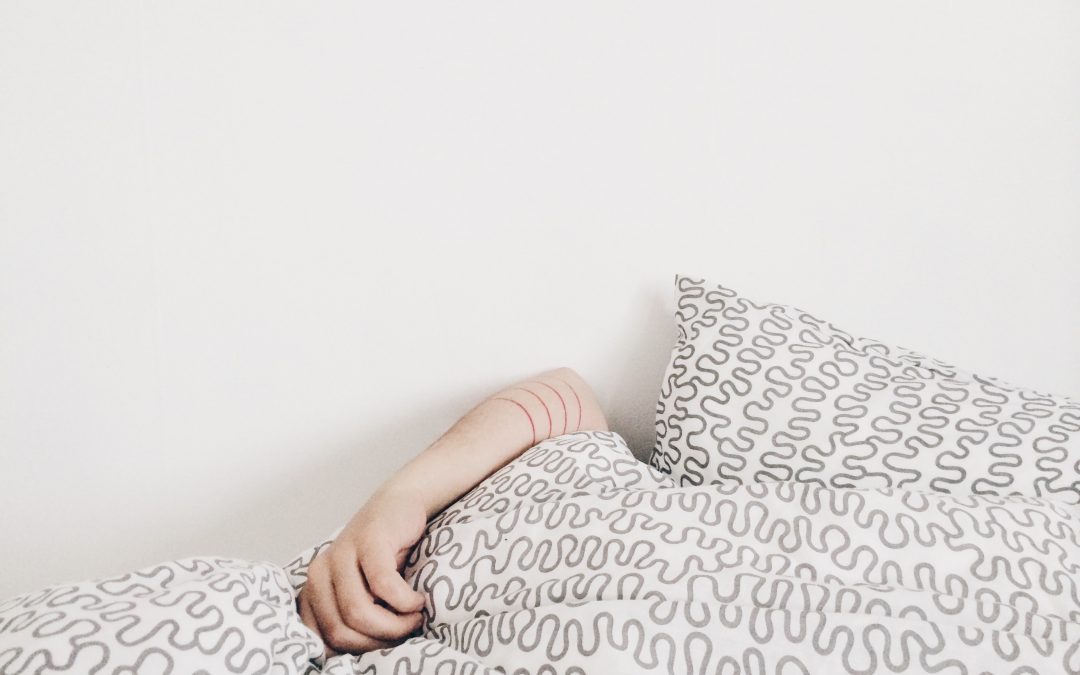10 ways to sleep better and reduce your pain
At PPG we know that pain management goes hand-in-hand with a good night’s sleep.That’s why we’re sharing these simple ideas to help you fall asleep quicker, and sleep for longer.
We help a lot of patients at our Warragul clinic with pain management and pain education. What you might not realise is how often we talk about sleep.
We have patients who suffer from insomnia caused by joint pain, chronic pain or anxiety over how to manage their condition. Experiencing pain naturally leads to a lack of sleep and vice versa, so it’s important we get you sleeping better.
Sleep can’t fix everything but it will lessen your pain, help your muscles relax and repair, and leave you feeling better-equipped to handle the day ahead.
Our bodies need sleep
The reason why more and more people are talking about sleep is, quite simply, because we need it.
Our bodies need to rest and recuperate, and we use the twilight hours to do that. A good night’s sleep helps to build strong immune systems so we can fight off infections and illnesses and gives our muscles a much-needed break for recovery.
Poor sleep also affects our mental health, the Sleep Health Foundation say:
‘Inadequate sleep can induce and/or make our feelings of anxiety and stress seem worse. We may not be able to think clearly or make sensible decisions, making it difficult to concentrate at school or work. [source]
Our top 10 tips for sleep
Lack of sleep is such a common issue for our patients that we thought we’d share our top 10 tips for sleeping better.
Here are our tried and tested techniques to get you sleeping better and waking up feeling refreshed:
-
Stick to a regular routine
How many of you get to Friday and Saturday and think ‘ohhh, I’ll have an extra glass of wine and stay up a bit later tonight?’.
It’s tempting, but if you’re suffering with sleep throughout the week you need to stick to a regular pattern. It’s the same approach we take with kids; keep a regular routine and your bodies will slowly learn what time it’s expected to sleep, and what time to wake.
Corinna from Progressive Physiotherapy Group likes to talk about the ‘time zone’ analogy.
‘Imagine you’ve just travelled long-haul, how long does it take your body to adjust to its new time zone? A week, or maybe 10 days? That’s how long you need to stick to your new routine.’
Be patient and stick with it! Your body will learn.
-
Wind down and breathe
Give yourself a bit of ‘me’ time before bed.
Have a warm bath, read a relaxing book and try some breathing techniques. This article lists some great apps to help with deep breathing and relaxation before bed, whether that’s meditation or just listening to white noise, such as waves or rain.
If you’re sitting there shaking your head thinking ‘nope, that’s not for me’ then try it! Before you know it you’ll be drifting off to sleep on a tropical island with your butler fanning you and feeding you peeled grapes (**may not actually be real).
-
Food and drinks to avoid
As with everything related to good health there are some things you’ll have to avoid. Sorry!
The main offenders are the ones we hear about all the time: alcohol, caffeine, chocolate, sports drinks and sugary drinks. Try to avoid having these any time after lunch and definitely not in the hour before you go to bed.
Finish eating an hour or two before you sleep to give your body time to digest the food before you go into relaxing mode.
-
The blue light
You knew this one was coming didn’t you? In the hour before bed you need to avoid TV, computer screens iPad, phones and anything with a false light, or blue light.
The light confuses your brain into thinking its still daylight and stops the production of Melatonin, the hormone that regulates your sleep. There are apps you can download that put a filter on your screen to reduce the blue light as you get closer to bedtime, or if you have an iPhone you can use the night mode setting.
The best thing is just to switch it off though! (and your brain will thank you too).
-
Improve your performance between the sheets
Your bedroom is your haven. It’s your place to unwind, get a little jiggy and prepare for sleep.
So, don’t treat it like a cinema, office or games room!
When you’re ready to sleep it’s time to put away the furry cufflinks and turn your bedroom into a blissful sanctuary.
Try some essential oils for a relaxing scent and get your room as dark as possible, especially in the Summer months when it’s lighter for longer. You might even want to invest in some blackout blinds (even Ikea do them!) or an eye mask (handy for multiple uses).
-
Too hot or too cold
If you’re struggling to drop off think about the temperature of the room.
Your body needs a slight drop in temperature to get to sleep so if you’re wrapping yourself up like a burrito in a hot doona, there’s a chance you’re too hot.
The ideal room temperature is 16-18 degrees, but this can vary depending on your personal body temperature, for example if you’re suffering from an illness you might have a higher temperature.
If you like the feeling of a heavy blanket on you (it’s proven to be relaxing) then you might want to try a weighted blanket. We don’t think a cat, dog or toddler lying on you has quite the same effect but you never know.
-
When to nap
If you have problems sleeping, you’re probably going to need a nap during the day.
There’s some research that suggests drinking coffee before a nap can help. We’re not sure if it’s true but hey! Any excuse for a coffee, right?
It’s great if you can push through without a nap but if you need a little pick-me-up then take your nap before 3pm for a maximum of 20 minutes. Any longer, and any later, and it will start to impact your evening sleep.
-
If you wake up, get up
If you wake up in the night then give yourself 20 minutes to try and get back to sleep then get up. Don’t fight it.
Your sleep comes in 90-minute waves so do something relaxing for an hour then see if you can drop back into a pattern of sleep. If you’re awake because your head’s too busy, get your thoughts out of your head and down on paper. They’ll still be there in the morning so you can deal with them then.
There, now you can sleep.
-
Take Magnesium (Mg)
Increasing your Magnesium levels can impact how you feel and, more importantly, how you sleep.
The benefits of taking Magnesium are huge, especially if you’re suffering from cramps, restless legs, sleep problems, chronic fatigue, persistent pain and a whole host of other symptoms.
You can get Magnesium from your food, for example in fresh leafy greens, avocados and bananas, but if you want to see the big benefits you might want to try taking a daily supplement. You can read more about it in our handout here.
Magnesium supplements are available here at PPG in Warragul, or just head to your local health store.
-
Keep a sleep diary
If you’re suffering from sleep deprivation it’s really handy for us, and any health professional, to know exactly what your sleep pattern looks like.
When you see it in writing you might be surprised to find you’re napping too late in the day or eating dinner too late at night.
Hopefully we’ll find some really easy fixes to get you sleeping like Rip Van Winkle.
Get in touch and sleep easy
If you’d like to talk to the team about pain management and sleep you can book an appointment by calling the lovely Di on 0497 111 127 or to head our contact page and fill in the contact form.

